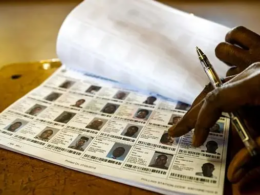By Veritas
We did say that Bills which had passed through the National Assembly and the Senate, but had not been signed by the President and published in the Gazette, lapsed when Parliament was dissolved just before polling day in the general election, and this applied to the PVO Amendment Bill.
Our reasoning was this:
· In terms of section 147 of the Constitution:
“On the dissolution of Parliament, all proceedings pending at the time are terminated, and every Bill, motion, petition and other business lapses.”
· A Bill that has passed through the National Assembly and the Senate, but has not been assented to by the President, is still a Bill and seems to be covered by the clear wording of section 147.
· There is also a general rule or convention applicable in countries with a parliamentary system such as ours, that no Parliament should bind its successor, and hence all Bills – including those that are awaiting assent by the Head of State – lapse when Parliament is dissolved. This convention is articulated in section 147, so arguably it applies in this country. The President’s assent to a Bill after Parliament has been dissolved should not serve as a means by which one Parliament binds its successor.
If these arguments are correct – and we think they are – then the PVO Amendment Bill lapsed when Parliament was dissolved on the 22nd August, immediately before polling day in the general election. As a result there was no longer a Bill for the President to refer back to Parliament, however justified his reservations about it may have been.
The only course for the Government to take, if it wants to proceed with the Bill, is for the Minister of Public Service, Labour and Social Welfare to start all over again. The Bill cannot be revived. Although Standing Order 171 of the National Assembly and Standing Order 162 of the Senate allow Bills lapsed at the end of a session to be revived in a subsequent session – if the National Assembly or the Senate pass resolutions to that effect. Those Standing Orders do not apply to Bills which have lapsed as a result of a dissolution of Parliament – the Standing Orders themselves say so.
The Parliament that was dissolved before elections was the Ninth Parliament of Zimbabwe. The one that has just been sworn in is the Tenth Parliament of Zimbabwe. It is a different Parliament and, by virtue of section 147 of the Constitution, it cannot be bound by the unfinished business of its predecessor.
It is a fitting end to the Bill. It was a most unsatisfactory one: vague, badly drafted and in many respects unconstitutional. The President himself had such serious reservations about it that he referred it back to Parliament. The new Minister should take the opportunity to reconsider it completely, perhaps even to scrap it.






